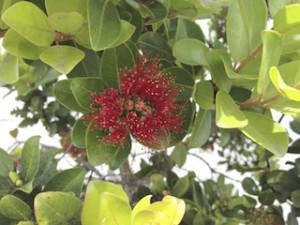Dear Haumana (students), Friends, and Fellow Teachers,
I have received questions over the years regarding the use of the word Huna, and I wanted to address this. As most of you that have studied with me, or who have read my book know, I talk about this very early in my workshops and trainings; however, in some places (like Facebook), it may not be as clear.
I studied with many teachers including the late Uncle George Na`ope (founder of the Merrie Monarch Hula Festival) who taught at our workshops for over 20 years. He had a saying, “A Ohe Pau Ko Ike I Kou Halau” (think not that all wisdom is in your school). I know that there is so much to learn, and I am only able to share my mana`o (wisdom) from my heart. Please realize that I know that I don’t know everything, and please also accept this Hawaiian saying to remember that not all wisdom is in any one school.
One of the first things I address in my workshops and my book is the misuse of the label Huna. I explain this very early in my book. What I teach is more accurately called Ho`omana (broken apart to make (ho`o) energy (mana), but really it means empowerment). Huna is a “modern label for an ancient system”, Uncle George explained. In ancient times it would have been called many other things, but never Huna. As I say in my book, it is unfortunate that the label has been used; however, we do live in modern times. Uncle George Na`ope, his sister Bernie Konanui, John Ka`imikaua, Papa Henry Auahi, Auntie Margaret, and many other cultural experts and practitioners who have taught in our workshop all agreed with this, and in fact they all were ok with calling it Huna.
Auntie Bernie Konanui summed it up best; while it would not have been called Huna in ancient times, the label still makes sense. Huna means hidden wisdom or concealed wisdom. The concept of Ho`omana (empowerment) is to find the hidden or deeper wisdom within yourself. She went on to say that there are now words for computer and airplane (mokulele, which literally means flying island), which are technically not Hawaiian (because they were not there in ancient times). She believes that you need to adapt to modern times with modern words, and she approves of the use and is happy I explain the proper name.
Etua Lopes the Kumu Hula at Hulihee Palace (who wrote the forward for my book) explains that the word Huna pertained to all of life in ancient times, because it is a description of the cycle of life. Kumu Etua teaches at our workshop that has been running for over 22 years now, and he and I have also discussed the idea of changing the name to Ho`omana. Yet, we have all come to the same conclusion: Huna is a modern (and inaccurate) label; however, Huna is the one that is known by the general public.
Overall, we have all come to the conclusion that if we use the word, and attract individuals to the concept, we have a better chance of teaching the “correct” words and labels. It has always been my goal having spent my life growing up here in Hawai`i, to honor and respect the traditions and respect the people that have taught me. When I was invited to teach my lineage to the students in the Hawaiian Studies Program at the University of Hawai`i, I said I know that I use the word Huna, and in Western teachings we always say “never judge a book by it’s cover”; therefore, I respectfully ask that you do take the time to realize there are teachers that agree with the idea that the label is inaccurate, and some of these teachers are doing the best they can to correct this hala / hewa (mistake).
Mahalo, Matt James
______
Matthew B. James, MA, PhD, President of The Empowerment Partnership. For training schedule and more info go to NLP.com & Huna.com.




